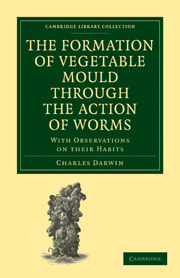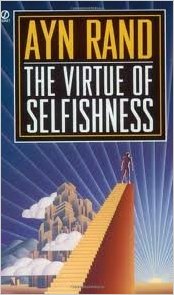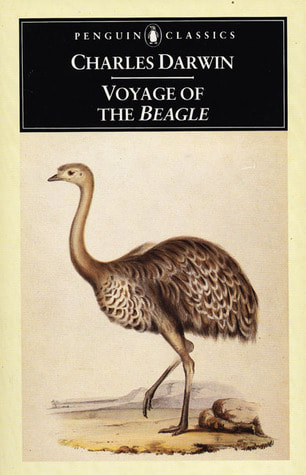|
Investing in Oil and Gas
By Mike May Published in January 2011 470 Pages Thibault’s Score: 4/5 This book is a great read. It is a very clearly written, and the format is perfect for anyone new to the oil and gas industry. First, Mike May explains the basics of the oil industry. He starts by explaining the basic science of hydrocarbons, and then gives an overview of the industry. He concludes by asking 150 questions which someone might have about an investment. The title “Investing in Oil and Gas” perfectly describes the content of the book. My goal, when buying this book, was to get a clear and concise introduction to the gas industry that points me towards a lot of future research topics and sources. It succeeded in achieving that goal. I think that May loses a few points for using the first person when explaining concepts, but besides that the writing is of excellent quality. I especially like the high degree of specificity of the book, and commend the author for the perfect balance of detail to general lessons. I recommend this book to people who want to get involved in the oil and gas industry, and are looking for a good place to start.
1 Comment
The Formation of Vegetable Mould through the Action of Worms with Observations on their Habits
by Charles Darwin Published in 1881 326 Pages Thibault’s Score: 4/5 In the years after he published On the Origin of Species, Charles Darwin decided to undertake several case studies to explore the theory of natural selection. He decides to explore earthworm behavior, and observe how they affect the quality of soil and mould. To do this, he begins by building numerous large pots of dirt which he lays about his house. He then proceeds to observe the behavior and habits of the worms over the next 20 years, until his death. As usual, I love Darwin’s writing style. It is clear and non-repetive. The book is incredibly well-cited which is rare for a work of the 19th century. I also throughly enjoyed reading through Darwin’s thought process, observations, and experimentations. Most of the book consists of Darwin explaining his experiments, then explaining his observations from the experiments. His interesting observations about worms are myriad. He also observes the way they react to different soils, light, heat, sound and numerous other factors. In another experiment, he the worms numerous different foods at once, and seeing which one they eat first, then does a control by feeding the worms the foods one at a time. The thing that most surprised me is how intelligent the worms were. For example he notices that they are easier to catch when they are distracted by mating or eating, indicating some degree of intelligence. He also observed that the worms would drag leaves into their burrows in a logical manner to seal the entrances. Furthermore, when the worms were exposed to new plants, they learned how to drag them into their dens and eat them. I recommend this book for all biology lovers who want to learn more about worms. The Virtue of Selfishness
by Ayn Rand Published in 1964 173 Pages Thibault’s Score: 3/5 While there were some nuggets of gold, overall I was not impressed. “If man holds life on earth as the good, if he judges his values by that which is proper for the existence of a rational being, then there is no clash between the requirements of survival and of morality. No clash between making himself able to live and making himself worthy of living. He achieves the second by achieving the first. But there is a clash if man holds the renunciation of this earth as the good, the renunciation of life, of mind, of happiness, of self.” - Ayn Rand Ayn Rand does a great job at destroying the tenets of both altruistic morality and mystical morality, although I think she fails at constructing an adequate replacement. Ayn Rand makes some important arguments. For example, she rejects moralities which concern themselves with a mystical metaphysical world that is disconnected from reality. She stresses the importance of grounding morality in concrete material objects, and illustrates the dangers of mystical moralities. The subjective nature of mysticism makes it much easier for tyrants to pervert and control morality for their own purposes, while the concrete world is much harder to alter. I have numerous problems with this treatise. She makes bold declarations but never defines any of the most important terms such as ethics, Ayn Rand’s critique of Nietzsche is pedantic. Ayn Rand writes that “Nietzschean egoists [are a] product of the altruistic morality and represent the other side of the altruist coin: the men who believe that any action, regardless of its nature, is good if it is intended for one’s own benefit.” Egoist Darwinism is literally the opposite of altruism. She is obsessed with copywrite and includes a ridiculous disclaimed about Nathanial Brandon saying she isn’t associated with him (because it was discovered she had an affair with him). Ayn Rand’s arguments against altruism border on the pathological. She argues that a man who spends all of his hard earned fortune on curing his sick wife is acting in self interest to keep her alive and avoid sadness. Altruism, like all other parts of the human experience, evolved biologically as a mechanism to protect one’s genes and tribe. If Ayn Rand had been writing in a later age, she would have probably had a better understanding of the genetic implications of selfishness. “Any action a man undertakes for the benefit of those he loves is not a sacrifice if it takes a higher place in the hierarchy of values in the total context of choices open to him - it achieves that which is of greatest personal and rational importance to him.” Ayn Rand makes important arguments, and touches on many important points, especially when it comes to arguing against opposing theories. She falls short when it comes to building positive moral theories. Proof is that Ayn Rand died alone and miserable. If her theories had worked better, and if she had been more genetically altruistically, she might have instead died with the company of a lover, and with children to pass on her biological legacy. I think that Ayn Rand is a worthy read, but the Virtue of Selfishness is far from her greatest work. I don’t recommend this book, and instead recommend the three classics Anthem, the Fountainhead, and Atlas Shrugged. Journey on the H.M.S. Beagle
By Charles Darwin Published in 1890 496 Pages Thibault’s Score: 4/5 This book should be taught in school. This is an amazing autobiographical book written by Charles Darwin where he describes his time as the naturalist on the H.M.S. Beagle, and explains how he discovered evolution. Recently, I read Charles Darwin’s autobiography which included every part of his life except his time on the H.M.S. Beagle, so I decided to read Journey on the H.M.S. Beagle. In 1831, Darwin left with the H.M.S. Beagle from England as a naturalist. He would spend the next 5 years exploring the Pacific and studying geology, anthropology, and biology. Part of the book was copied directly from notes Darwin took on the journey, and the rest was written in two waves in 1839 and 1845. Darwin has many great adventures. He journeys with General Juan Manuel de Rosas, the dictator of a small region in Argentina. He fights indians and animals. He crosses the Argentine desert without water. This book contains many interesting accounts of life in 19th century South America. Darwin was shocked to find out how primitive many of the locals are. In the third chapter, he describes the astonishment of indigenous natives when he showed them his compass. He also fascinated natives with his matches, and taught them how to use technology to easily start fires. Darwin took great pleasure in exposing the natives to advanced British technology and teaching them about the modern world. Darwin is also a deeply moral person. In the second chapter, he makes numerous anti-slavery arguments. He decries the sale of a slave family’s children, and is relieved when the owner decides not to split up the family. Later in the chapter, he is yelling at one of his black servants who had failed to follow his instructions. In doing so, he waves his hands, and the slave immediately lowers his own hands. Darwin realizes that the slave was worried that he would accidentally shield himself from Darwin, and be punished for thus resisting. After that incident, Darwin felt ashamed, and became a staunch moral opponent of the unfair treatment of blacks. From a biology perspective the insights are legion. For the first few chapters of the book, Darwin describes and compares many different exotic species of animals and insects, and he begins to ponder why species that are very similar can inhabit very different parts of the earth. I didn’t know that Darwin also was a paleontologist and found numerous dinosaurs in Argentina, findings which influenced his understanding of the theory of evolution. Interestingly enough, the animal Darwin writes the most about is probably the Ostrich. As the book progresses, Darwin writes more and more in evolutionary terms. He talks about the relationship between species, and talks about analogous species and related ancestry. By Chapter 17 where he recounts his stay on the Galapagos Archipelago, he talks blatantly about rats arriving on European ships and evolving to adapt to local conditions, and has already formulated the theory of evolution. As usual, Darwin doesn’t disappoint. His style of writing is complex but clear, and all of his thoughts are, as usual, very lucid. This is probably one of the best books to learn basic biology. The book reads like a 19th century adventure novel, and Darwin is constantly faced with interested situations. He also explains his reasoning and ideas to laypeople without a background in science very well. I strongly recommend Journey on the H.M.S. Beagle to anyone who is interested in biology and anthropology. |
Thibault SerletMost of my articles are book reviews, but I also write about many other topics. Archives
December 2023
Categories |




 RSS Feed
RSS Feed